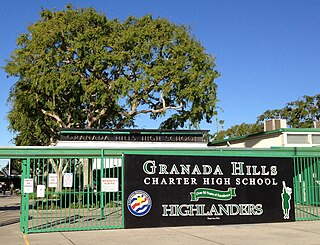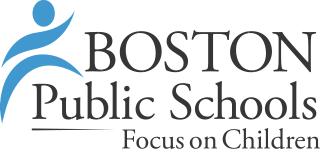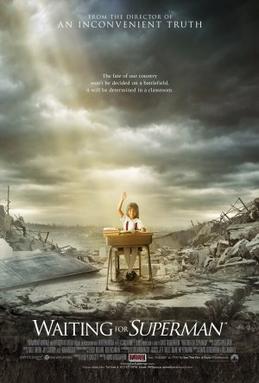Education reform is the name given to the goal of changing public education. The meaning and education methods have changed through debates over what content or experiences result in an educated individual or an educated society. Historically, the motivations for reform have not reflected the current needs of society. A consistent theme of reform includes the idea that large systematic changes to educational standards will produce social returns in citizens' health, wealth, and well-being.

Charter schools in the United States are primary or secondary education institutions that are public schools which are publicly funded and operate independently, rather than being overseen by local school districts. Charter schools have a contract with local school districts or other authorizing bodies that allow them to operate. These contracts, or charters, are how charter schools bear their name. They are funded with public tax dollars, though they also fundraise independently. Charter schools are subject to fewer rules than traditional state schools in exchange for greater accountability. Proponents argue that they are meant to serve underserved communities that wish to have alternatives to their neighborhood school. Charters are run as either non-profit or for-profit institutions. However, there are some for-profit management organizations that hold charters, though these are only allowed in Arizona. Only non-profit charters can receive donations from private sources, just the same as traditional public schools.

Rhonda "Randi" Weingarten is an American labor leader, attorney, and educator. She is president of the American Federation of Teachers (AFT) and a member of the AFL-CIO. She is the former president of the United Federation of Teachers.

The New Jersey Department of Education administers state and federal aid programs affecting more than 1.4 million public and non-public elementary and secondary school children in the state of New Jersey. The department is headquartered in the Judge Robert L. Carter Building in Trenton.

The New Jersey School Report Card is an annual report produced each year by the New Jersey Department of Education for all school districts and schools in the U.S. state of New Jersey. The current School Report Card presents thirty-five fields of information for each school in the following categories: school environment, students, student performance indicators, staff, and district finances; however, initially the cards provided far less information.
The Middletown Township Public School District is a comprehensive community public school district that serves students from pre-kindergarten through twelfth grade from Middletown Township in Monmouth County, in the U.S. state of New Jersey.

Boston Public Schools (BPS) is a school district serving the city of Boston, Massachusetts, United States. It is the largest public school district in the state of Massachusetts.

Michelle Ann Rhee is an American educator and advocate for education reform. She was Chancellor of District of Columbia Public Schools from 2007 to 2010. In late 2010, she founded StudentsFirst, a non-profit organization that works on education reform.
Academy Charter High School is a four-year charter public high school located in Lake Como, in Monmouth County, in the U.S. state of New Jersey, that operates independently of the local school district under the terms of a charter granted by the Commissioner of the New Jersey Department of Education. The school serves residents of Allenhurst, Asbury Park, Neptune, Avon-by-the-Sea, Belmar, Bradley Beach, Deal, Interlaken and Lake Como. Students are accepted at the school on a lottery basis with seats in the incoming freshman class allocated in proportion to the population of each of the participating municipalities and any remaining unfilled seats are then offered to residents of other communities.
The Wenonah School District is a community public school district that serves students in preschool through sixth grade from Wenonah, in Gloucester County, in the U.S. state of New Jersey.
The Avon School District is a community public school district that serves students in pre-kindergarten through eighth grade from Avon-by-the-Sea, in Monmouth County, in the U.S. state of New Jersey.
The Bradley Beach School District is a community public school district that serves students in pre-kindergarten through eighth grade from Bradley Beach in Monmouth County, in the U.S. state of New Jersey.
The Bay Head School District is a community public school district that serves students in pre-kindergarten through eighth grade from Bay Head, in Ocean County, in the U.S. state of New Jersey.

Baltimore City Public Schools (BCPS), also referred to as Baltimore City Public School System (BCPSS) or City Schools, is a public school district in the city of Baltimore, state of Maryland, United States. It serves the youth of Baltimore City. Traditionally, however, the Baltimore City Public Schools system has not referred to itself as a "district," as the operation of the schools was synonymous with the city of Baltimore. Its headquarters are located on 200 East North Avenue at North Calvert Street in the Dr. Alice G. Pinderhughes Administration Building.
The Alpha School District is a comprehensive community public school district that serves students in pre-kindergarten through eighth grade from Alpha, in Warren County, in the U.S. state of New Jersey.
Gerald L. Zahorchak is an American educator and the former Secretary of Education for the Pennsylvania Department of Education, a position he held from 2006 to 2010. Throughout the 1980s and 1990s, Zahorchak worked at various Pennsylvania public school districts in a number of positions, including teacher, football coach, principal, federal programs director, strategic planning coordinator and personnel director. Zahorchak worked as superintendent of the Greater Johnstown School District in Cambria County from 1997 to 2003, when he was chosen to be Deputy Secretary for Elementary and Secondary Education for the state. Governor Ed Rendell appointed him Secretary of Education in 2005.

Waiting for "Superman" is a 2010 American documentary film written and directed by Davis Guggenheim and produced by Lesley Chilcott. The film criticizes the American public education system by following several students as they strive to be accepted into competitive charter schools such as KIPP LA Schools, Harlem Success Academy and Summit Preparatory Charter High School.
Chartertech High School for the Performing Arts is a public charter high school for students in ninth through twelfth grades in Somers Point, Atlantic County, in the U.S. state of New Jersey, that focuses on education in the performing arts. The school operates independently of the local school district under a charter granted by the New Jersey Department of Education.
Charter schools operate with considerably more independence than traditional public schools. However, Massachusetts has two kinds of charter schools - Commonwealth Charters and Horace Mann Charters. Horace Mann charter schools differ from Commonwealth charter schools as they must be located within a school district. Both kinds of charter schools are free to structure their curriculum and school environment; for instance, many charter schools fit more instructional hours into a year by running longer school days and providing instruction on weekends and during the summer. Because few charter schools are unionized, they can hire and fire teachers and administrative staff without regard to the collectively bargained seniority and tenure provisions that constrain such decisions in most public schools. Although charter students made up only 2.9 percent of U.S. public school enrollment in 2008–2009, charter enrollment has grown rapidly and seems likely to accelerate in the near future. The growth of charter schools is an important component of the contemporary education reform movement's pursuit of accountability and flexibility in public education. Proponents see charter schools' freedom from regulation as a source of educational innovation, with the added benefit of providing a source of competition that may prompt innovation and improvement in the rest of the public system. At the same time, charter schools are controversial because, after a transition period in which the state provides subsidies, they receive a tuition payment for each enrolled student paid by students' home districts. In Massachusetts, tuition payments are determined largely by the average per-pupil expenditure in sending districts. Not surprisingly, therefore, public school districts are concerned about the revenue lost when their students enroll in charter schools.
Bob Bowdon is a longtime broadcast journalist who is the executive director of ChoiceMedia.TV, an investigative video website devoted to education reform. He is a champion of school choice, charter schools, vouchers, merit pay, and other types of education reform.








